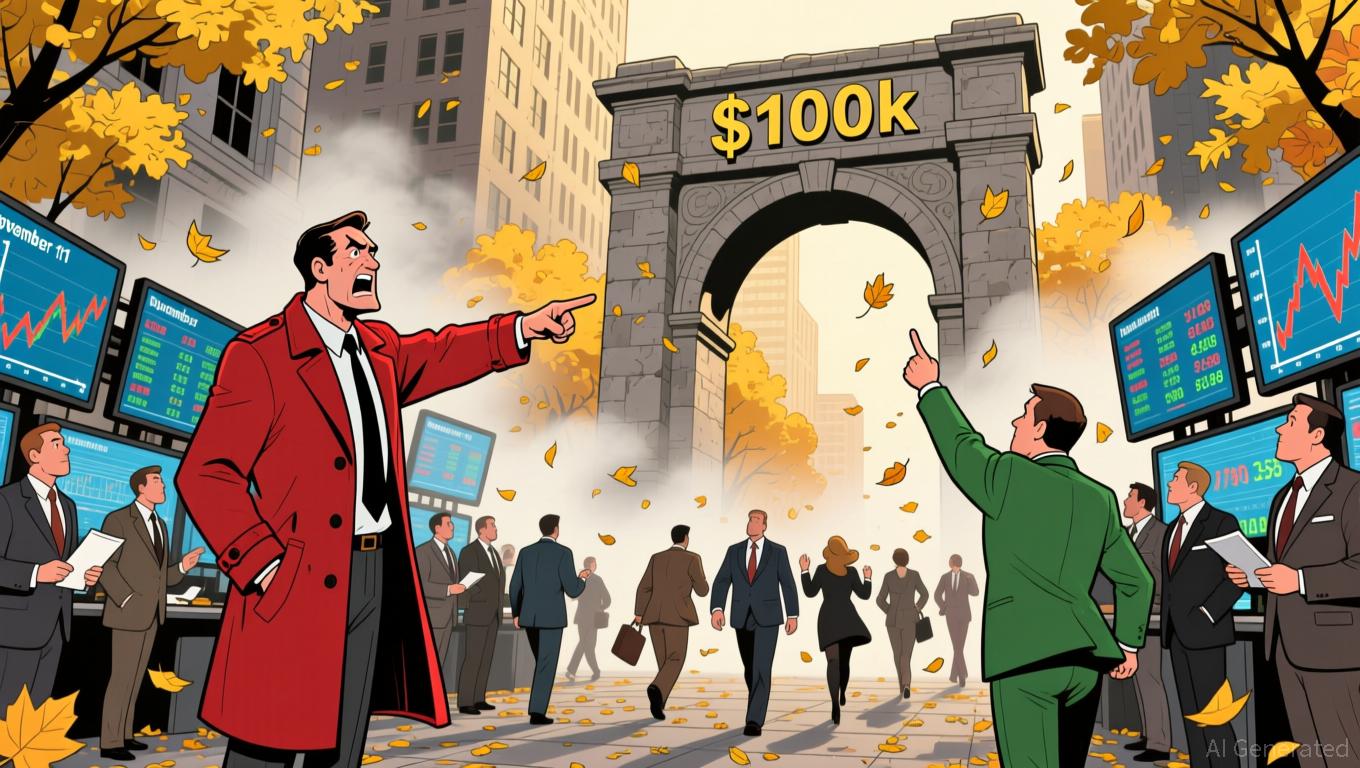Two-Tiered U.S. Economy: Technology Leaders Prosper While Employees Face Hardships
- U.S. economy shows "K-shaped" divergence: tech giants and high-income groups thrive while low-income workers and small businesses lag. - Magnificent Seven tech firms' earnings expectations rose 4% vs. 1.5% decline for S&P 500 peers, driven by AI and stock wealth concentration. - Wage theft lawsuits and labor law loopholes exacerbate inequality, with 68% of Americans living paycheck-to-paycheck as of October 2025. - Critics warn systemic instability risks grow without addressing wage stagnation, enforceme
Economists and market observers are increasingly noting that the U.S. economy is splitting into a "K-shaped" pattern, where affluent households and major tech firms continue to thrive, while those with lower incomes and small businesses find it difficult to keep up. This growing divide, fueled by concentrated gains in artificial intelligence and the stock market, has left millions of Americans in what some call a "sea of despair," with issues like wage theft and weak enforcement of labor laws making the gap even wider
The idea of a K-shaped economy—where economic paths split rather than come together—has become more pressing as 2025 progresses. Research from Apollo Academy, led by chief economist Torsten Slok, points out that profit forecasts for the so-called "Magnificent Seven" tech leaders—Apple,
At the same time, disputes over pay and wage violations highlight the difficulties faced by lower-wage workers. The Supreme Court recently upheld a $22 million wage award against battery producer East Penn Manufacturing Co., refusing to settle a legal disagreement over how to calculate paid work hours
The personal toll of this economic split is significant. In Australia, a coal miner’s legal action against BHP and its labor hire partners alleges a $2.5 billion wage theft operation, with claims that the companies falsified records and misclassified workers to avoid paying proper wages
Some critics say that policymakers are failing to address the fundamental drivers of this inequality. Mark Zandi, chief economist at Moody’s, points out that the wealth effect from rising stock prices—mainly benefiting the rich—has added nearly half a percentage point to GDP growth over the past year, but warns that this growth cannot last if most workers are left out
The effects of the K-shaped economy go beyond individual families. Companies that serve budget-minded shoppers—such as discount chains and private-label brands—are prospering, while luxury and non-essential sectors are encountering challenges
As the gap widens, the threat of broader instability increases. Economists caution that a K-shaped recovery, driven by spending from the wealthy and growth in tech, hides deeper weaknesses. Unless issues like stagnant wages, weak labor law enforcement, and limited access to funding for small businesses are addressed, the U.S. economy could face long-term imbalances with serious consequences
Disclaimer: The content of this article solely reflects the author's opinion and does not represent the platform in any capacity. This article is not intended to serve as a reference for making investment decisions.
You may also like
ZEC drops 5.9% over 24 hours as significant institutional funds flow in
- Zcash (ZEC) fell 5.9% in 24 hours amid a 20.64% 7-day drop, but gained 768.62% over one year. - Cypherpunk Technologies acquired 1.25% of ZEC supply via a $58.88M Winklevoss Capital-backed investment, aiming to accumulate 5% total supply. - Tyler Winklevoss positioned Zcash as "encrypted Bitcoin ," emphasizing privacy-driven value transfer and potential to capture Bitcoin's market share. - Technical analysis shows ZEC breaking key support levels with RSI near neutrality, while institutional activity reve
LUNA Drops 2.7% Over 24 Hours as Overall Market Shows Signs of Weakness
- LUNA fell 2.7% in 24 hours to $0.0788, continuing a 12.29% weekly and 15.2% monthly decline. - Technical indicators show bearish momentum, with RSI below key support and MACD in negative territory. - The drop reflects broader market caution and waning investor confidence amid persistent risk-off behavior.
Bitcoin News Today: The Bipartisan Promise of Bitcoin: Defined by Fundamental Principles Rather Than Political Agendas
- BTC Policy Institute study reveals Bitcoin's bipartisan appeal in U.S. politics, with Democrats valuing financial inclusion and Republicans/Independents prioritizing energy benefits and anti-government control. - Market data shows $1.15M ETF inflow and rising spot trading volume ($14.1B) on Nov 11, 2025, signaling stabilization amid $100K price floor support and geopolitical tensions over BTC seizures. - Institutional innovation like Amboss-Voltage's Lightning Network payments system reduces processing c

LINK Chart Points Toward $29.57 $49.28 and $79.21 as Channels Hold
